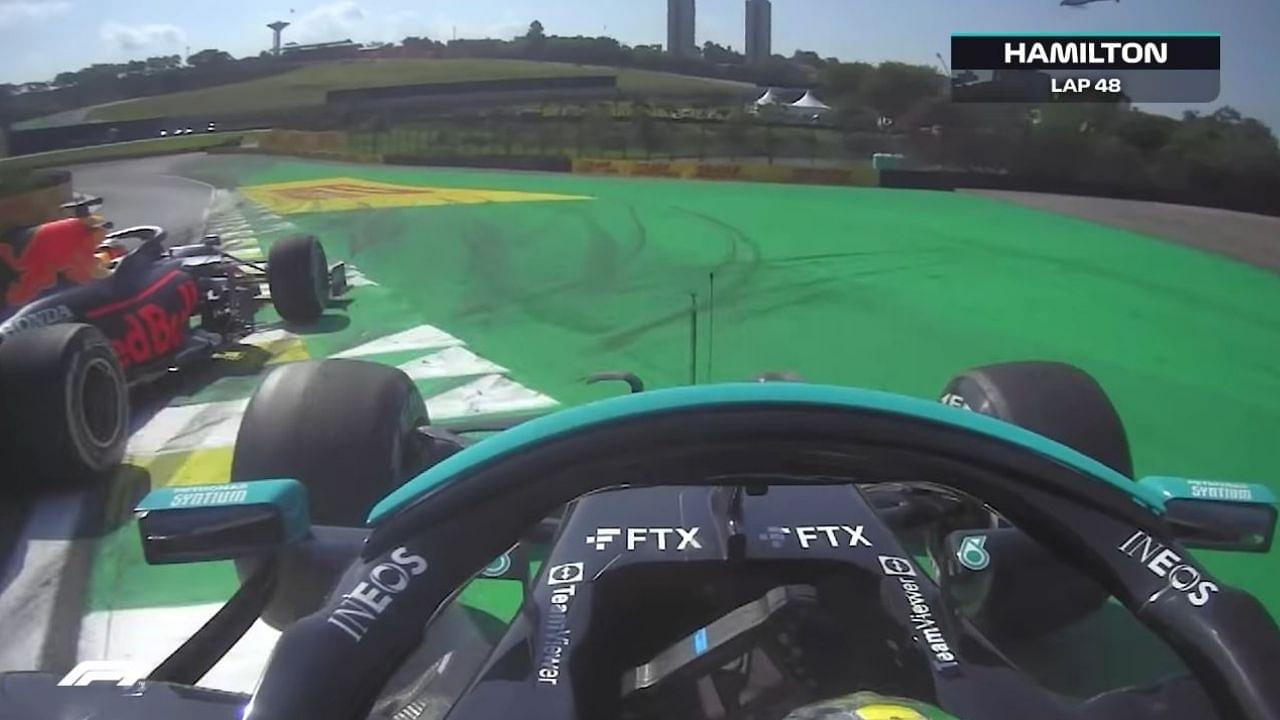Ex F1 driver Jolyon Palmer claims Max Verstappen escaping the penalty at Interlagos didn’t go right and would set the wrong precedent.
Max Verstappen and Lewis Hamilton had some tough battles at Interlagos. In one such incident during lap 48, Hamilton almost overtook the Dutchman, when the latter steered him out of the track limits.
The FIA was prompt to have a look at it, but later declared it need no action. Mercedes on Tuesday launched an appeal to review the decision. Moreover, a video released by the SkySports, which apparently the stewards chose to not see on Sunday set fans’ opinion in Hamilton’s favour.
— Mercedes-AMG PETRONAS F1 Team (@MercedesAMGF1) November 16, 2021
Max Verstappen 🆚 Lewis Hamilton: Wheel to wheel ⚔️
Watch the on-board footage from Verstappen’s car as he defends from Hamilton at the #BrazilGP #SkyF1 | #F1 pic.twitter.com/LliaSNt2of
— Sky Sports F1 (@SkySportsF1) November 16, 2021
Ex-F1 driver Jolyon Palmer is also not happy with the FIA’s decision, and claims for him it didn’t make any sense to not penalize Verstappen.
“Verstappen made his intentions very clear that he would do everything possible to stop Hamilton passing him, with his contentious defensive move,” Palmer in his F1 column.
“I absolutely understand why Verstappen did what he did, but was it a legitimate defensive move? Was it just good, hard racing or was it a step too far?”
“I’m dubious about the decision. For me, it raises questions about precedents for racing in the future – and from a sporting point of view, it didn’t make sense to me.”
“I’m sure that this was an immensely tough decision for the stewards to make, given everything at stake with their decision here, and the weight of the outcome hanging over them. But for me, it was a clear case of forcing another driver off track.”
Also read: Former F1 driver thinks Max Verstappen compromised his performance by being too defensive at Turn 1
Is Max Verstappen driving acceptable now?
Palmer believes had Verstappen remained within the track limits, there could have been a grey area in the 24-year-old driver’s favour. So, Verstappen going out left no chance with Hamilton to remain on track.
Therefore, Palmer thinks Verstappen was wrong. He further questions whether this kind of defence is now acceptable with the FIA, as now it’s a reference for other drivers.
“Had Verstappen managed to at least stay on the track himself then I think we would be in the grey area seen so many times already this year; is it hard defence and the driver on the outside has to back off, or is it squeezing another driver off the road?” Palmer asked.
“If Verstappen had stayed on track, I think the former could be argued, and that is what has been the case in almost all circumstances this year.”
“But the fact that Verstappen was so late on the brakes, from a tight angle, meant he also had to run off the road by multiple car widths. That denied Hamilton the chance to stay on track.”
“If this sort of defensive manoeuvre is now acceptable, how can we expect another move to be completed around the outside, so long as there is the ever more popular asphalt run-off?”
Also read: Max Verstappen claims he took safer option while forcing Lewis Hamilton off the track in Brazil







